Exceptionally Able Learners
Opportunities for Exceptionally Able Learners
There are many opportunities for Exceptionally Able Learners including:
- Fortnightly challenges: Each fortnight, our students receive a stretch and challenge activity from a different subject depending on their key stage. There are rewards for all entries, and exhibitions towards the end of term to showcase best essays, posters and creative responses to challenge questions.
- Debating and Public Speaking: Throughout the Summer Term 2022, Year 9 students have the opportunity to participate in a debating club developing their skills in British Parliamentary Debating. Year 7 Students engage in the Great Debate, Year 8s can participate in a club run by Ms D Bartoli, Year 9s by Ms M Neza and Ms S Thorpe and Year 10s in the Jack Petchey Speak Out Challenge run by Ms M Springer.
- KS3 and 4 Tutor Programme. Years 7-10 refine their goals, review their progress and attend tutorials on extracurricular topics to deepen their thinking.
Curriculum – Our curriculum is designed to give additional opportunities and choices so that our Exceptionally Able Leaners are sufficiently stretched, challenged and prepared for the next phase of their education. These include: GCSE Astronomy, Latin as an additional language, pathways which support EBacc success, completion of the Higher Project Qualification in KS4 and support for Further/Higher education.
Enrichment- All of our extra-curricular activities, trips and clubs provide our Exceptionally Able Learners with further opportunities to progress and to develop their leadership attributes.
Assessment, tracking and targeting – Like all our students, close attention is paid to the progress of our Exceptionally Able Leaners. Frequent assessments are differentiated and a range of intervention measures are put in place when underachievement is identified.
Grouping – students may be put into ability groups in some subjects from as early as Year 7. However, when taught in mixed-ability groups, our teachers adapt their practice to ensure our Exceptionally Able Learners are being challenged. Many of our school leaders prefer mixed ability teaching for the subjects they manage and they evaluate how well mixed-ability group teaching is challenging the Exceptionally Able students. For example, the school was part of the UCL / EEF Best Practice in Grouping Students programme from 2015-17.
Enrichment- All of our extra-curricular activities, trips and clubs provide our Exceptionally Able Learners with further opportunities to progress and to develop their leadership attributes.
Assessment, tracking and targeting – Like all our students, close attention is paid to the progress of our Exceptionally Able Leaners. Frequent assessments are differentiated and a range of intervention measures are put in place when underachievement is identified.
- All learners are entitled to be stretched and challenged. Our ethos is to teach to the top in every class.
- The most effective able student provision is rooted in good classroom teaching and learning.
- Our teachers focus on positive learning behaviours (for all learners) through our Tallis Habits and teaching and learning vision that students learn when they are deep in thought.
Grouping – students may be put into ability groups in some subjects from as early as Year 7. However, when taught in mixed-ability groups, our teachers adapt their practice to ensure our Exceptionally Able Learners are being challenged. Many of our school leaders prefer mixed ability teaching for the subjects they manage and they evaluate how well mixed-ability group teaching is challenging the Exceptionally Able students. For example, the school was part of the UCL / EEF Best Practice in Grouping Students programme from 2015-17.
Independent Home Learning –Exceptionally Able Learners, like all students, are provided with appropriate and challenging work to be completed independently. They should not be allowed to underachieve or to hand in work which is of a mediocre standard. They are encouraged to read widely around their areas of study.
Exceptionally Able Learners from disadvantaged backgrounds
We aim to help students and families to overcome socio-economic and cultural barriers to attending further and higher education. We are aware that some of our students come from homes where no parent or close relative has directly experienced progression to university. Using the PPG (pupil premium grant) Tallis positively discriminates and engages proactively with the parents or carers of these students to tackle this challenge and students are provided with ‘enhanced’ curriculum provision, access to cultural and social activity, and personalised support.
